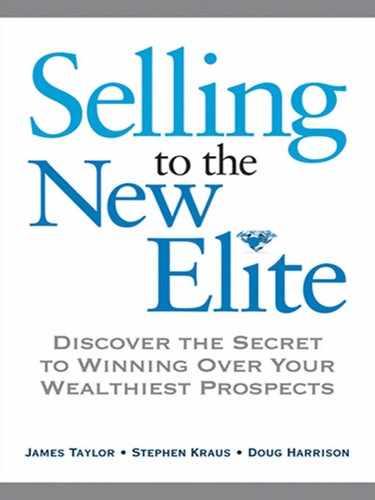Introduction
We have focused much of our work in the past five years on understanding wealthy individuals and luxury markets. We have worked with companies such as Mercedes-Benz, American Express, Cartier, Neiman Marcus, and many others. In other words, we have worked with companies for which luxury is not a preoccupation, but a passion. The same search for extraordinary quality also defines our clients who are not “luxury” providers, but are still exemplars of excellence in their categories—companies such as Microsoft, Coca-Cola, and Vitamix.
It is in passion, and with passion, that we find the greatest opportunity to sell.
We know how hard the last four years have been. Many have called it the Great Recession, with good reason, as it has already been far longer and more severe than any economic downturn since the Great Depression. Government economists tell us it began in December 2007, but our research identified spending cutbacks and an “emotional recession” as early as mid-2006. As of the writing of this book in September 2010, our research still suggests challenging times ahead for sales professionals. Despite the government’s assertion that the recession ended in June 2009, over 90 percent of the affluent believe the recession still continues today, and over 60 percent expect it to continue for more than a year—attitudes that can easily become self-fulfilling prophecies. Most have reduced their spending. “I’ll buy whatever I want” has been replaced with “Let’s buy only what we need.” The process has made them feel smart, not deprived, and most expect to continue their newfound frugality and value-orientation when and if the economy improves. The unfortunate bottom line: Today’s economic challenges are unlikely to resolve themselves easily, deeply, or soon.
We know it has been hard to make your numbers.
Challenge, as always, creates opportunities. The desire to acquire runs deep in the human species, and despite their heightened value-orientation, the affluent continue to shop, particularly in categories they are passionate about. Moreover, excellence is still valued. Despite the economy, the affluent have been reluctant to trade down—their expectations about and desires for quality, craftsmanship, and service have not diminished. Meanwhile, their expectations that purchases be thoughtful and meaningful have risen.
This is a book about how to sell, in these tough times, the very best things.
We wrote this book primarily for those engaged in face-to-face selling of high-end products and services to financially successful individuals. But it is also of interest to those more tangentially related to that core mission, such as:
• Those who sell to the 90 percent who aren’t affluent.
• Those who sell nonluxury products.
• Sales managers whose charge is to hire, grow, and retain top sales professionals.
• Advertising, marketing, and branding executives who try to build customer relationships “from afar”—through traditional and social media, through the products they create, through the brands they develop, through the retail experiences they design, through the corporate culture they build, and through the sales approach they instill directly and indirectly via hundreds of management decisions daily.
A WORD ABOUT OUR RESEARCH
Unless otherwise noted, data cited in this book are from our Survey of Affluence and Wealth in America, produced by Harrison Group and American Express Publishing. Now entering its fifth year, this industry-leading study of financially successful individuals is described more fully in the appendix. Throughout this book, for simplicity, we use the term “affluent” to describe the roughly 11 million U.S. households with at least $100,000 in annual discretionary income; we use the term “wealthy” to describe the 600,000 or so U.S. households with at least $500,000 in annual discretionary income. The spending power represented by these relative small groups is tremendous. In dollar terms, the 11 million affluent households account for a majority of the assets and consumer spending in the United States.
